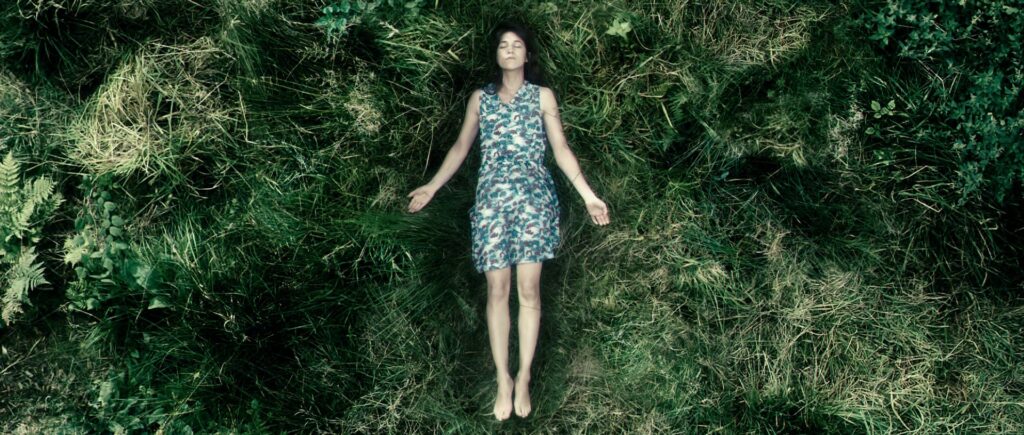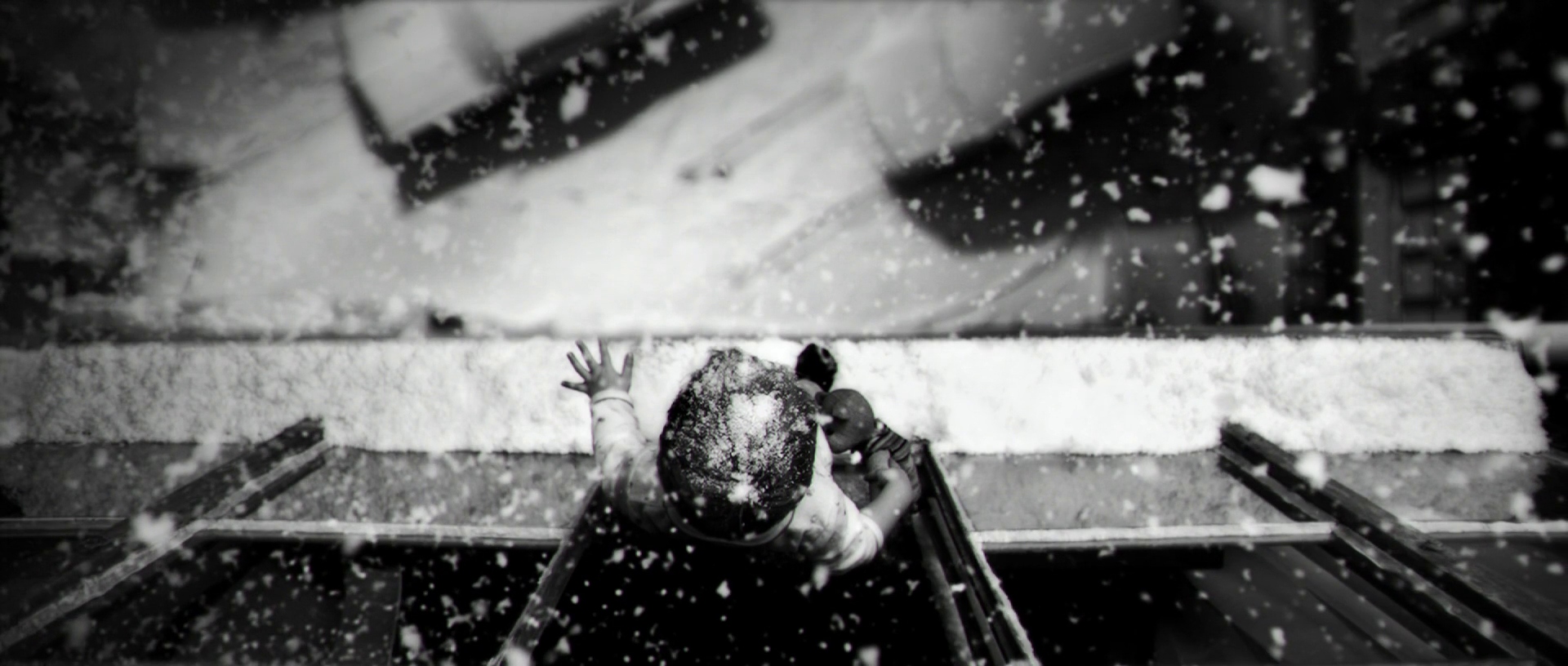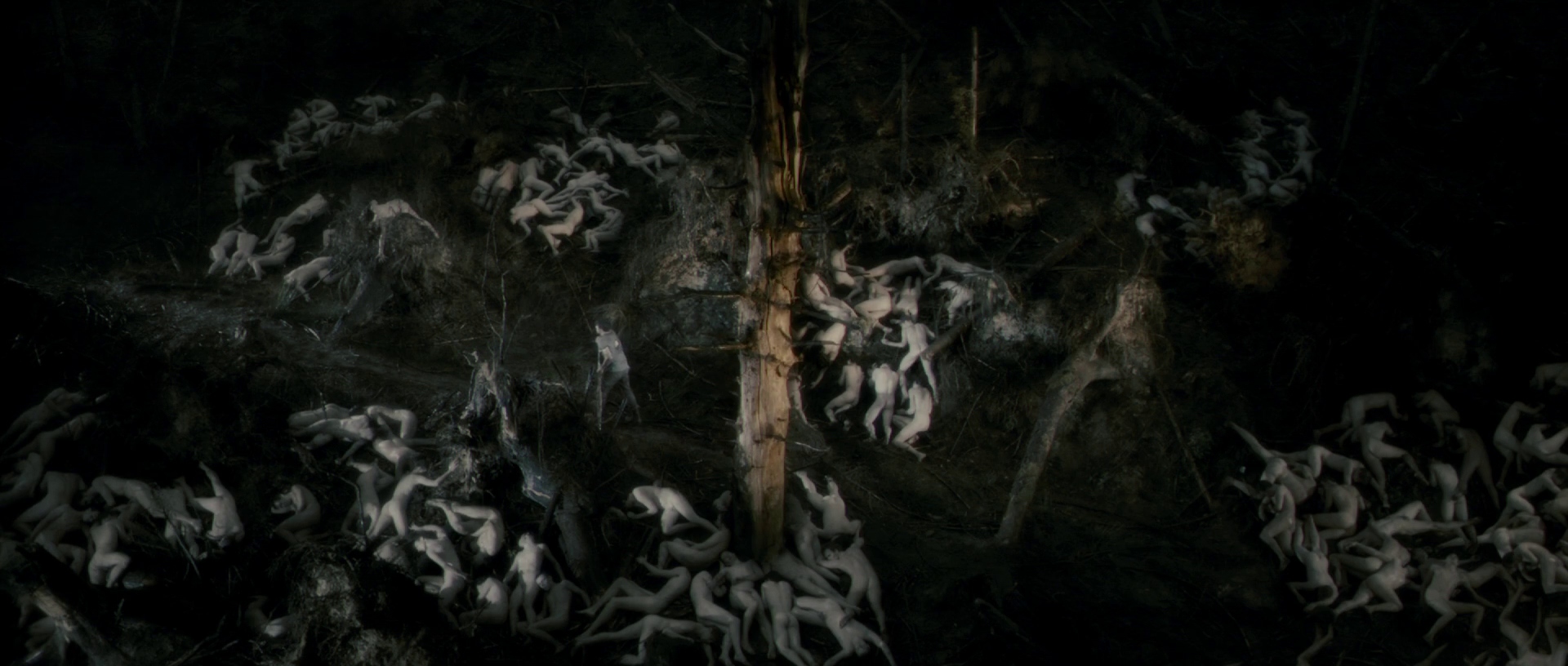
Lars von Trier’s Antichrist (2009) is not merely a horror film; it’s a harrowing, almost unbearable psychoanalysis of grief, misogyny, the primal chaos of nature, and the terrifying depths of a relationship imploding.
For the readers of horrorpsych.us, this is an unflinching descent into an abyss where sanity fractures and the line between therapy and torture dissolves.

The film opens with a sequence of breathtaking, slow-motion beauty that is immediately, irrevocably tainted by tragedy. As a couple, identified only as He (Willem Dafoe) and She (Charlotte Gainsbourg), engage in passionate lovemaking, their infant son, Nic, silently falls from an open window to his death. This primal scream of loss, both literal and metaphorical, is the seismic event that shatters their lives and plunges the film into its relentless spiral of despair. Their grief is not a quiet sorrow; it’s a monstrous, consuming force that manifests as mutual blame, psychological torture, and a horrifying unraveling of the self.
He, a psychotherapist, attempts to apply his professional methods to her profound, debilitating grief. He convinces her to confront her fears in the symbolic “Eden” of their secluded cabin in the woods, a place she calls “Eden” but which quickly reveals itself to be anything but. This isolated setting, shrouded in mist and pulsating with an ominous natural presence, becomes a crucible for their breakdown. Nature itself, far from being a healing force, is presented as indifferent, hostile, and ultimately, mirroring the chaos within them. The chilling title cards “Grief,” “Pain,” “Despair,” and “The Antichrist” mark their descent, structuring a descent into hell.

The psychoanalytic horror lies in the weaponization of therapy and intimacy. He believes he can “cure” her, but his methods are often manipulative, condescending, and ultimately, re-traumatizing. He continually pushes her, forcing confrontations she isn’t ready for, effectively denying her the space to process her grief naturally. This creates a terrifying power dynamic, where his desire for control clashes violently with her descent into madness, fueled by her own unexamined guilt and deeply ingrained fears about her gender.
She’s terrifying evolution is the core of the film’s controversy and psychological depth. Initially a victim of immense suffering, she slowly transforms into an agent of primal, destructive chaos. Her past research on misogynistic practices and her growing conviction that “nature is Satan’s church” reveal a deeply ingrained self-loathing and a terrifying belief in the inherent evil of women. Her violent acts – self-mutilation, genital mutilation of Him, and other unspeakable horrors – are not just random acts of madness, but expressions of a profound, internalized misogyny and a desperate attempt to punish herself and Him for their perceived sins, for the very act of creation that led to their child’s death.

The film confronts uncomfortable truths about gender roles and the destructive potential within relationships. He, the rational, controlling male, ultimately becomes the helpless victim, literally emasculated by her rage and despair. She, the emotional, grieving female, becomes the ultimate avenger, unleashing a primordial violence that transcends human understanding. The speaking fox, uttering “Chaos reigns,” is not just a surreal moment; it’s the film’s thesis statement, emphasizing that beneath the veneer of human order and reason, a terrifying, untamed force truly governs.
Antichrist is a relentless, punishing cinematic experience that dares to explore the most forbidden corners of grief, sex, and violence. It forces us to confront uncomfortable questions: Can grief truly lead to such depravity? Is there an inherent “evil” or chaos within humanity, especially when pushed to the brink? And what happens when the very foundations of love and trust erode into mutual torture? It’s a film that refuses easy answers, instead leaving the viewer with a profound sense of despair, witnessing a relationship not just die, but rot from the inside out, consumed by its own darkest impulses.





